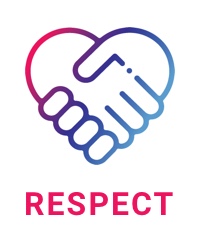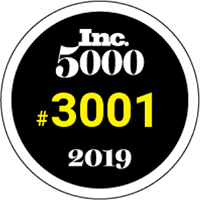
This series explores our four core values with brief, high-level overviews of the meanings as well as the subtle nuances. Next, we focus on Respect.
To guide our discussion on respect, here’s a quick overview:
- a deep admiration for someone or something elicited by their abilities, qualities, or achievements;
- due regard for the feelings, wishes, rights, and traditions of others.
These definitions depict two very different aspects of respect. One is holding someone in high regard because of who they are or what they can do.
This is an important part of respect, as it means we recognize achievements and capabilities of individuals. But it is also the easier aspect of living respect because we are already impressed with the person or organization. They have already earned our respect.
The bigger challenge is respecting people, from clients and fellow employees to partners and vendors, when their path may not perfectly align with ours. It means realizing we are not always right, or our objectives might be different, but still working hard to reach a level of understanding.
Respect also means we expect the same from each other, including our clients and partners. Respect must be a two-way street. We need to hold ourselves and those we work with accountable for living respect, even in challenging situations.
One subtle aspect of respect is it frequently requires selflessness.
One subtle aspect of respect is it frequently requires selflessness. It requires treating someone the right way even when you do not believe that’s being reciprocated. But you should also ultimately expect respect in return.
One major goal as a company is to be highly respected as a leader in our areas of expertise. That starts with us respecting ourselves, each other, and our clients and partners. It means treating others the way we want them to treat us and putting ourselves in their shoes.
Another CEO friend of mine had a great test for whether one is living the core value of respect. He said you should never find yourself walking down the sidewalk, see someone, and want to cross the street so they don’t see you. That is a strong litmus test.
Change isn’t always smooth.
But despite change, our company can stay true to who we are and what got us here. In fact, continually thinking about our core values, using them as a guiding light, is more important than ever before as we face new challenges. As our team grows, we need to intentionally and regularly remember our core values.
Recognizing this, our plan is to incorporate reminders of our values into as many aspects of our internal communication and processes as possible. There’s great weight to these four words. This series shares thoughts, observations, and examples of how they are being lived within our company.
My ask of you: Understand these four deep but simple truths and seek to incorporate their ethos into your day-to-day. In return, you have every right to expect us to live up to these values and to call us out if we’re not.
Andrew Kurtz
President & CEO
Explore Our Core Values Series



